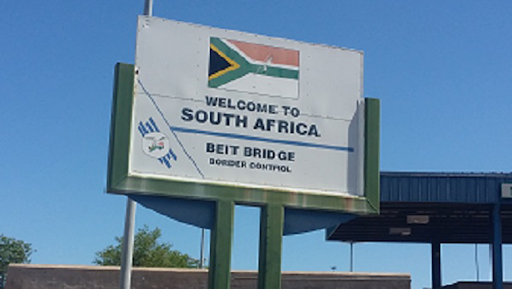South Africa has passed a Border Management Authority (BMA) Bill, which is expected to improve security at all the country`s entry points.
This most likely means the number of people who illegally enter the neighbouring country would be reduced, once the bill comes into law.
Zimbabwe is believed to have the highest number of migrants living and working in South Africa with some crossing illegally into that country. Beitbridge border is the biggest inland port in Southern Africa and handles huge volumes of both human and vehicular traffic amid high levels of border jumping.
In a press statement issued by the Parliamentary Communication Services on behalf of Chairperson of the Portfolio Committee on Home Affairs, Advocate Bongani Bongo, the passing of the bill was welcomed as is intended to remedy the fragmented border management model, which is said to have resulted in a variety of challenges in relation to control of the country’s borders.
The BMA Bill is intended to establish a border management authority and a single implementing entity under a single executive authority.
The committee is hopeful that President Cyril Ramaphosa will quickly assent the Bill into law to enable processes for the establishment of the agency to begin swiftly.
Commenting on the move, African Diaspora Forum Chairperson (ADF), Dr Vusumuzi Sibanda described the move as good but said it did not address the reasons behind border jumping.
“It’s a good thing because the BMA is going to make sure the borders and ports of entry are not particularly porous. There are places where for example, others can cross via the bush, which means it will be difficult for people to do so if they have officials deployed to stop that,” he said.
Dr Sibanda noted the BMA would be effective if officials deployed to man the borders also did not force illegal immigrants to pay bribes as means of passage into South Africa.
“Some of the problems that we have are related to corruption where people have to pay at the border just to go across and even if they don’t have papers. Those are the issues that need to be addressed but I doubt the BMA is going to improve on that,” he said.
Dr Sibanda also urged South Africa to lobby neighbouring countries to solve their political and economic challenges to stem the high number of illegal migrants in South Africa.
“I don’t think the solution to illegal immigration lies in a border management agency, it actually lies in solving the political instabilities and poor economic conditions that prevail within Africa. These are factors that are going to continue forcing African people and others from Asia, who are poverty-stricken to find greener pastures,” he said, adding that illegal migrants also included those from Europe.
“There are others who come in thinking there are better investment opportunities, so it has nothing to do with border management.”
Chairperson of the Zimbabwe Community in South Africa, Ngqabutho Nicholas Mabhena said they will not condemn their host country for wanting to improve their border systems.
“We will not condemn South Africa when it is putting proper systems to manage its border system because even as Zimbabweans we want to manage our borders effectively, so that every person who visits Zimbabwe uses correct entry points.
“Likewise South Africa is organising themselves in terms of managing their ports of entry so that people use the normal channels to enter and we certainly support such,” he said.
Mabhena added that the BMA Bill seeks to make sure all ports
of entry are properly managed.
“We are yet to see how the officials will perform. But as the Zimbabwe
community in South Africa, we don’t encourage anyone to use an unofficial entry
point to enter the country. We encourage everyone to acquire a Zimbabwean
passport and use the correct channels,” said the chairperson.
“Usually what happens is people do come through using legal papers to enter South Africa and are given a number of days but then do not go back, as they take their passports back to zimbabwe through other means so that they are stamped at the border. Since there will be new management systems, we will see how it works out.”
He noted that besides strengthening borders, South Africa must work on implementing the white paper on international migration gazetted in 2017, which looks at improving immigration strategies.
“Since the South African parliament is now amending the Immigration Act, we call on them to incorporate the proposals that are listed in the white paper on international migration,” Mabhena said.

